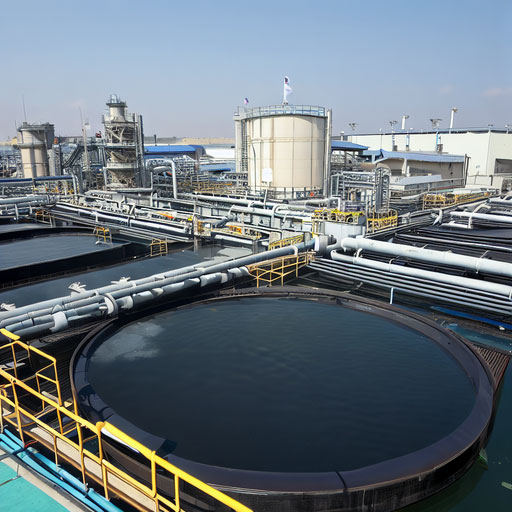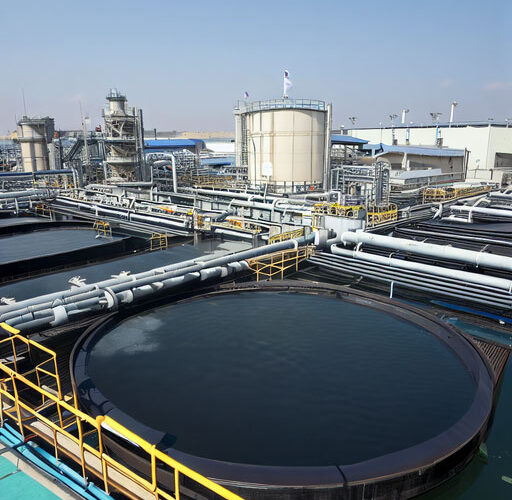In today’s world, effective industrial wastewater treatment is paramount not only for regulatory compliance but also for environmental sustainability. This is where the versatile and high-performing geosynthetic material, geomembrane sheets, come into play. In this blog, we’ll explore the significant role of geomembranes in industrial wastewater treatment, emphasizing their crucial contributions to a cleaner and greener future.
Understanding Geomembrane Sheets
Geomembrane sheets are engineered materials made from durable polymers like polyethylene, polypropylene, and PVC. These sheets are specifically designed to act as a barrier, providing containment and protection for various applications, including industrial wastewater treatment. Their impermeable properties make them an ideal choice for preventing the contamination of soil and groundwater.
Applications of Geomembrane in Industrial Wastewater Treatment
- Wastewater Ponds and Basins
Industrial facilities often use ponds or basins to store and treat wastewater. Geomembrane liners are pivotal in these systems, creating an impermeable barrier that ensures the waste remains contained. This containment is critical in preventing soil and groundwater pollution.
- Leachate Collection Systems
In landfills, where the disposal of industrial waste is a concern, geomembrane liners are installed in leachate collection systems. These liners prevent leachate, the liquid runoff from waste, from infiltrating the surrounding environment. Geomembrane sheets not only contain the leachate but also protect the soil and groundwater.
- Lagoon Systems for Biological Treatment
Some industrial wastewater requires biological treatment in lagoon systems. Geomembrane liners create impermeable lagoons that ensure the wastewater stays within the designated treatment area. This containment is vital for the success of the biological treatment processes.
Benefits of Geomembrane in Industrial Wastewater Treatment

- Environmental Protection: Geomembrane sheets are the first line of defense against soil and groundwater contamination. They play a critical role in safeguarding ecosystems and preventing the spread of hazardous substances.
- Cost Savings: By preventing environmental contamination and the need for expensive cleanup efforts, geomembrane sheets result in significant long-term cost savings for industries.
- Durability: Geomembrane sheets are designed to withstand harsh chemical environments and UV exposure, ensuring a long lifespan and minimal maintenance.
- Regulatory Compliance: Many environmental regulations require industries to take measures to protect the environment. The use of geomembrane sheets demonstrates a commitment to compliance and responsible waste management.
- Versatility: Geomembrane sheets are available in various types and thicknesses, making them adaptable to different industrial applications. They can be customized to suit specific project requirements.
Conclusion: Toward a Cleaner and Greener Future
As industries continue to expand, the responsible use of geomembrane in industrial wastewater treatment is an investment in both the environment and the well-being of future generations. These impermeable barriers serve as a testament to human ingenuity, preventing environmental contamination, mitigating the impact of industrial activities, and ensuring a sustainable future. Geomembrane sheets are not just a solution; they are a commitment to a cleaner and greener world.

